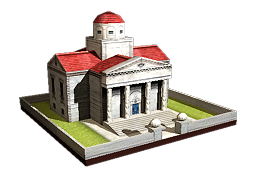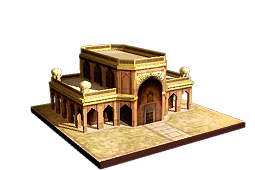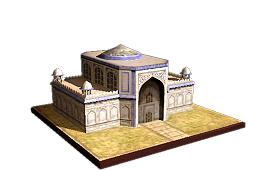| State House
|
| Category: |
Government
|
| Form: |
Republic
|
| Level: |
2
|
| Turns to build: |
4
|
| Building cost: |
2000
|
| European
|

|
| Indian
|

|
| Middle Eastern
|

|
|
| Requires
|
|
|
| Enables
|
State Capitol
|
A republic stands for government of the people, for the people and (to some extent) by the people, and it is here that the people’s representatives meet to discuss local issues.
Republics maintain representative government structures at a local level, with each province eventually having its own assembly as it becomes rich or populous enough to justify it. Locally elected worthies enact local laws, appoint or form the judiciary, raise militias, and exercise all the other functions of government, sometimes with a degree of common sense.
Representative government is the basis of a republic, although the qualifications needed to be a voter are often restrictive. Representation of “the people” is not necessarily democratic: most republics prevent the unwashed masses from voting by having property, age, sex, class, or religious restrictions. Of these, property and social class qualifications are by far the most common – the logic being that only men of substance have a properly vested interest in their nation’s survival, and the wisdom to exercise their franchise correctly. Historically, even the Founding Fathers of America were very careful in establishing that only men with property could vote – universal suffrage was an alien and frightening idea!





